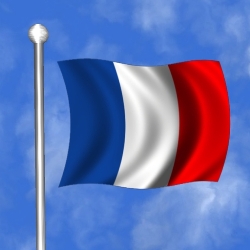How Much Value Do Sponsored Big Name Pros Bring To Poker Sites?

Many big name sponsored pros are Americans and cannot even access the sites they represent, whereas the ones that can operate in one of the USA’s three regulated iPoker states which segregate their relatively small markets from the rest of the world. In recent times a number of online poker sites have started reducing the number of sponsored players on their rosters, prompting discussions on poker forums as to the real value poker’s big names actually bring to the sites that pay them.
The subject has been thoroughly addressed in an article which appeared in flushdraw.net entitled ‘Do Poker’s Big Names Automatically Deserve Sponsorship?’ and here are some of the key points brought up in the piece.
Poker Superstar Daniel Negreanu
Canadian pro Daniel Negreanu is one of the most recognizable poker players in the world today and a leading member of Team PokerStars. The 40 year-old’s credentials speak for themselves having captured 6 WSOP bracelets and $29,796,380 in tournament winnings throughout his illustrious career, placing him at number one on poker’s ‘All Time Money List.’
Despite being predominantly a live tournament player, the outspoken and at times controversial Negreanu continues to present an ideal marketing opportunity for his sponsored site, PokerStars, as his sociable personality, poker skill, and cheerful disposition makes him a natural darling of the poker marketing world.
Mike Sexton, “Ambassador of Poker”
Likewise, Mike Sexton has enjoyed tremendous success at poker since taking up the game in 1977, and has since captured both a WSOP and WPT event, amassing $5,710,314 in tournament winnings along the way. However, the 67 year-old is equally well known for being a major promoter of various poker events, and was key in bringing the World Poker Tour (WPT) to life alongside Vince Van Patten.
Consequently, the “ambassador of poker” continues to be a valuable spokesman for his sponsored site PartyPoker.com, and after being inducted into the Poker Hall of Fame in 2009, the World Series of Poker issued a statement labeling Sexton “a true gentleman who has constantly enhanced the game of poker both with his play at the tables and his promotion of the game off of it.”
Vanessa Selbst, Women’s No.1
Despite living in the USA, PokerStars sponsored pro Vanessa Selbst represents good value for the site’s marketers who are keen to appeal to the game’s female demographic. PokerStars couldn’t have found a better role model for its female players, either, as the 30 year-old Yale Law School graduate has 3-WSOP bracelets to her name and is ranked number one on the Women’s ‘All Time Money List‘ with $10,554,413 in winnings.
Other US pros signed to non US-facing sponsors
However, the value of other US sponsored pros signed to non US-facing sites is less clear, and while these poker rooms would certainly benefit if the US market does eventually open up to full participation, for now it remains questionable whether “big” names pros, such as Jason Mercier and JC Tran still have the same “name recognition” appeal amongst younger audiences outside of the US.
Some Big Names Can Negatively Impact Brand
Two of the biggest names in poker are those of Gus Hansen and Phil Ivey, both of whom are currently being sponsored to promote Full Tilt Poker and Ivey Poker, respectively. However, these two pros are not without controversy, and while 10-times WSOP winner Phil Ivey has a number of outstanding lawsuits against him related to casino edge sorting allegations, Hansen is the biggest loser in the history of online poker with a staggering -$20,395,597 in losses to his name.
Needless to say, sponsored pros should either help attract people to the game of poker, or act as a role model for others to emulate, neither of which seem to apply to these two “big name” pros with Gus Hansen appearing to legitimize losing and serious gambling addiction, and Phil Ivey being labeled a “cheat” by some of the casinos in which he plays poker.
Overall Marketing Strategy Needed
Poker sites also stand to lose money through salaries, bonuses and general outlay associated with sponsoring players and if a player subsequently fails to make a positive impact on the market, this outlay becomes a drain on the company’s finances. Summing up his fascinating article, Rob King subsequently concluded by stating:
“Sponsoring a player needs to be part of an overall marketing strategy, and signing one of poker’s big names is no longer a way to attract players to a single site, let alone the game itself. If poker is ever really going to shed its shady image and be accepted as a game of skill by the mainstream, the players who represent it need to embody the best parts of the game. They must be relevant to the potential players they are presented to, and above all they must be able to promote the game without their own baggage becoming the story.”










